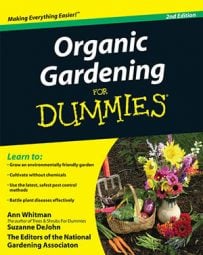Organic fertilizers are a kinder, gentler way to give plants the nutrients they need. Organic fertilizers usually come from plants, animals, or minerals and contain a variety of nutrients to enhance the soil ecosystem. Synthetic fertilizers don't enhance soil life or add organic matter. Other benefits for using organic fertilizers over synthetics are:
They release their nutrients more slowly in the soil, when the plants need them, so they last longer.
The nutrients are contained in complex molecules that won't leach away with the first rain.
They are less likely to burn the young roots of seedlings. Synthetic fertilizers are made from mineral salts that can kill roots as well as soil microbes if applied improperly.
They enhance soil health by nurturing (or at least not harming) the soil microbes that help make soil nutrients available to plants.

